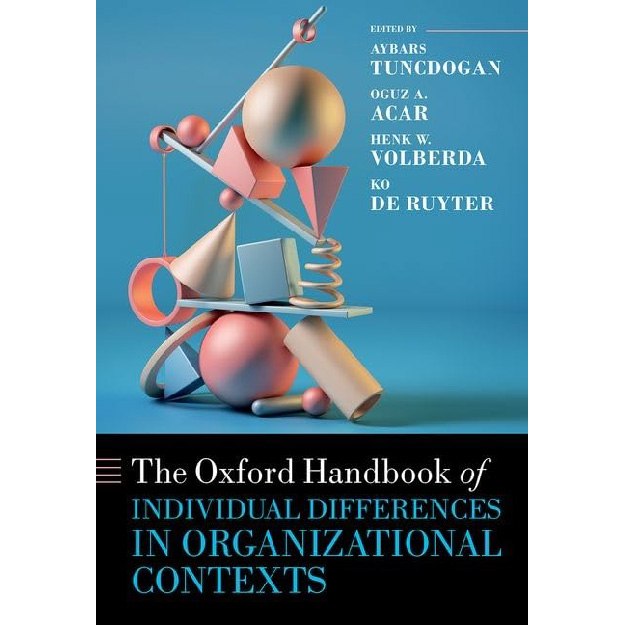The Oxford Handbook of Individual Differences in Organizational Contexts
9780192897114
-
₪877.00₪974.00
אזל המלאי
פריט זה ניתן על ידי קרדיטים.
לחצו על "הוספה לעגלה" להמשך
לחצו על "הוספה לעגלה" להמשך
אזל המלאי עבור /
-
זמן אספקה ותנאי רכישההערות:
• זמן אספקה: הזמנות בהן כל הספרים זמינים במלאי - זמן אספקה – כ- 5 ימי עסקים (למעט אזורים חריגים בהם ייתכן עיכוב נוסף).
ספרים שאינם זמינים במלאי: זמן אספקה כ- 14 -45 ימי עסקים בהתאם למלאי במחסני המו"ל בחו"ל - הודעה תימסר ללקוח.
• הזמנה במשקל כולל של עד 14 קילו ישלחו ללקוח באמצעות חברת שליחויות עם שליח עד הבית (בישובים מסוימים המסירה תתבצע למרכז חלוקת הדואר המקומי)
• במידה וקיים עיכוב במשלוח ההזמנה או חוסר במלאי הספרים תשלח הודעה ללקוח.
• במידה ויבחר הלקוח עקב עיכוב במשלוח כנ"ל לבטל הזמנתו ויודיע על כך לידע, ידע מתחייבת לזכות החיוב.
• במידה ויתברר כי הספרים אזלו מהמלאי ולא ניתן לספקם - תשלח הודעה ללקוח.
• האיסוף העצמי ממשרדי ידע יבוצע רק לאחר הודעה ללקוח שההזמנה מוכנה לאיסוף.
דמי משלוח:
ניתן לבחור: 1. איסוף עצמי - ללא תשלום
2. משלוח עד הבית
The Oxford Handbook of Individual Differences in Organizational Contexts/ Aybars Tuncdogan, Oguz A. Acar, Henk Wijtze Volberda, Ko de Ruyte
2024
Individual differences represent one of the oldest research areas within psychology and serve as the 'nature' component critical for understanding human behaviour. This domain's constructs have long been applied in organizational spheres, including organizational behaviour, organizational psychology, managerial psychology, personnel psychology, leadership, and management. As a result, there exists a vast body of literature exploring the role of individual differences in organizational settings.
The Oxford Handbook of Individual Differences in Organizational Contexts reviews the individual differences, paying attention both to psychological differences (e.g., personality traits, dark personality traits, intelligence types, self-monitoring, chronic regulatory focus) and biological/physiological differences (e.g., sex, age, facial morphology, genetic differences, neurological differences). In doing so, it serves two purposes. First, it aims to help decrease fragmentation in the field, and facilitate discussions among different streams of research within this literature. Secondly, it aims to render this literature more accessible to academics and students wishing to deepen their understanding of individual differences.
Comprising twenty-six chapters authored by fifty-seven esteemed academics, this book facilitates readers in comprehending the key findings, questions, and future research areas of individual differences research in organizational contexts. This book can be of interest also to practitioners that need a deep understanding of individual differences, such as HR managers and recruiters.
מוצרים קשורים
-
יח'יח'יח'
תודה על השיתוף
קיבלתם הנחת שיתוף מיוחדת! על מנת להינות מהנחה זו עליכם להוסיף את הפריט לעגלת הקניות בכפתור הוספה לעגלה.
הצטרפו לרשימת המתנה לחזרה למלאי
הצטרפות לרשימת ההמתנה בוצעה בהצלחה.
אנו נשלח אליכם מייל כאשר הפריט יחזור למלאי.





